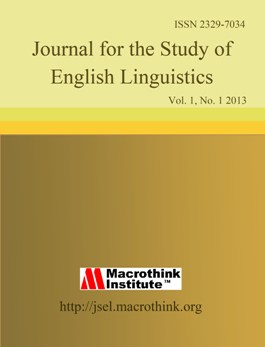K-Pop Idol Controversies: Malaysian Tweets and the Emotive Language of Cultural Appropriation
DOI:
https://doi.org/10.5296/jsel.v12i1.22343Keywords:
emotive language, cultural appropriation, online discourse, k-pop idol, twitterAbstract
This study aims to analyze the use of emotive language in Malaysian tweets reacting to the cultural appropriation by K-Pop idols. As K-Pop grows globally, cultural sensitivity within the industry becomes crucial. Twitter serves as a key platform for idols to engage with fans, and Malaysia's cultural values shape how user express emotions, particularly in response to cultural appropriation by idols from more homogeneous societies. A qualitative content analysis was employed, examining 20 tweets from Malaysian users to explore emotive language and its connection to cultural values. The analysis followed the framework by Martin and White (2005), revealing that all tweets expressed negative emotions in response to appropriation. Additionally, Hofstede’s cultural dimensions were applied to understand how Malaysian cultural values influence the use of emotive language. The findings suggest that strong cultural pride and sensitivity play significant roles in shaping these reactions. This study aims to reduce incidents of cultural appropriation by enhancing cultural awareness among K-Pop idols and the industry. Furthermore, it contributes to the broader discourse on the intersection of cultural values and emotive language in addressing issues of appropriation within global entertainment cultures like K-Pop.




